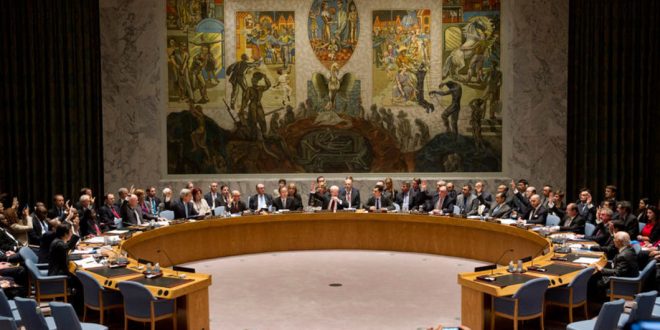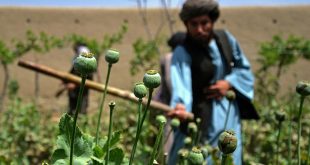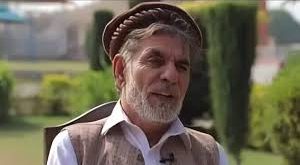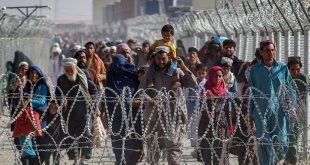AT News
KABUL – In a high-level open debate at the United Nations Security Council (UNSC) focused on “Famine and Conflict-Induced Global Food Security,” representatives from various nations underscored the dire humanitarian situation in Afghanistan and expressed their deep concerns regarding the escalating need for humanitarian assistance. The meeting brought together diplomatic voices from influential countries including Russia, the UK, Pakistan, India, Qatar, and Switzerland.
Barbara Woodward, the distinguished UK Ambassador to the UN, emphasized the significance of the Secretary-General’s New Agenda for Peace. She urged for a renewed sense of multilateral collaboration, with a particular focus on empowering women who find themselves in precarious situations, like those in Afghanistan who face agonizing choices between selling their children or succumbing to starvation.
Dmitry Polyanskiy, the 1st Deputy Permanent Representative of Russia to the UN, delivered a pointed statement, attributing the most pressing food crises to actions either directly or indirectly linked to the United States or its allies. Mr. Polyanskiy specifically cited the case of Afghanistan, attributing its prolonged struggle with hunger and impoverishment to the experimental endeavors of the US-led coalition in attempting to impose Western-style democratization on the traditionally rooted nation.
India, represented by its Ambassador to the UN, Ruchira Kamboj, seized the opportunity to underline its contributions towards global food security. Ambassador Kamboj underscored India’s unwavering commitment to aid, mentioning the provision of thousands of metric tonnes of essential foodstuffs, including wheat, rice, pulses, and lentils, to countries grappling with food insecurity, even amidst the challenges posed by the ongoing COVID-19 pandemic.
With the spotlight on the deteriorating humanitarian circumstances in Afghanistan, Ambassador Kamboj emphasized India’s compassionate gesture of gifting 50,000 metric tonnes of wheat to the Afghan population. In addition, she detailed India’s consistent humanitarian support to Myanmar, marked by a grant of 10,000 tonnes of rice and wheat. Similarly, India extended a helping hand to Sri Lanka during its trying times.
UN estimates indicate an alarming figure of 362 million individuals in 62 nations requiring urgent humanitarian assistance, marking a record high. The compounded effects of the global COVID-19 pandemic and the Russia-Ukraine conflict have been driving up the costs of food, fuel, and fertilizers, disproportionately impacting nations in the global south.
Ambassador Kamboj further elucidated India’s alignment with the UN Secretary-General’s Black Sea Grain Initiative. However, she expressed concerns over recent developments impacting the larger cause of peace and stability, urging for a resolution to the existing impasse. The Black Sea Grain Initiative, a collaborative pact involving Ukraine, Russia, Turkey, and facilitated by the UN, allows for commercial exports of food and fertilizers from key Ukrainian ports situated in the Black Sea region.
 Afghanistan Times
Afghanistan Times




